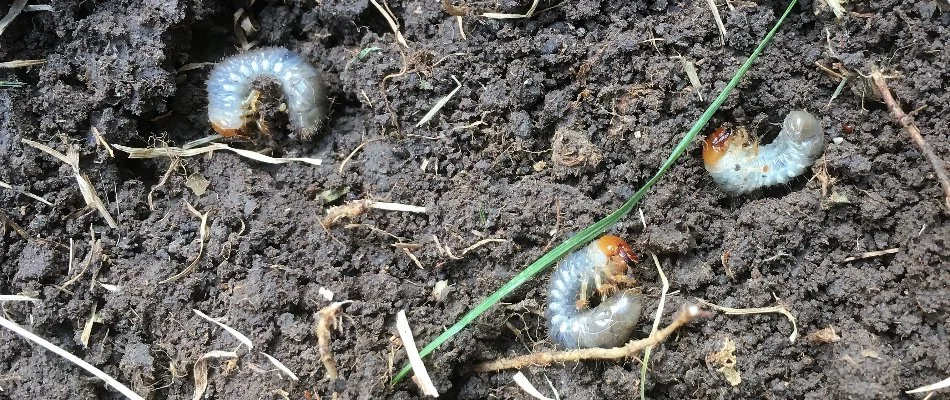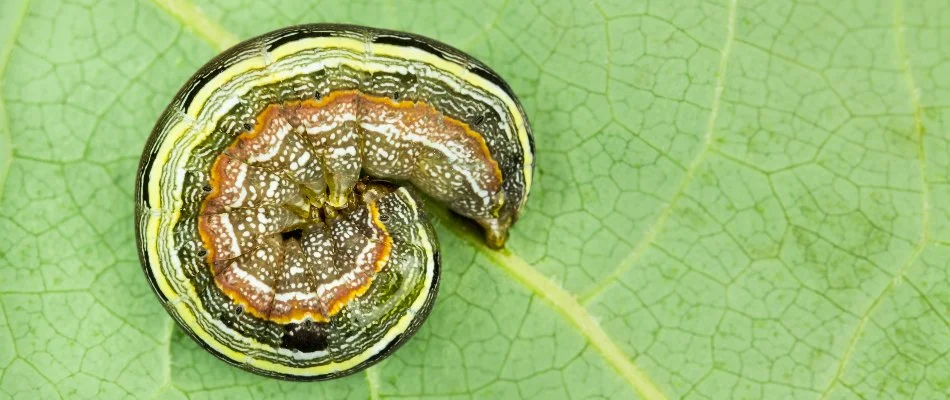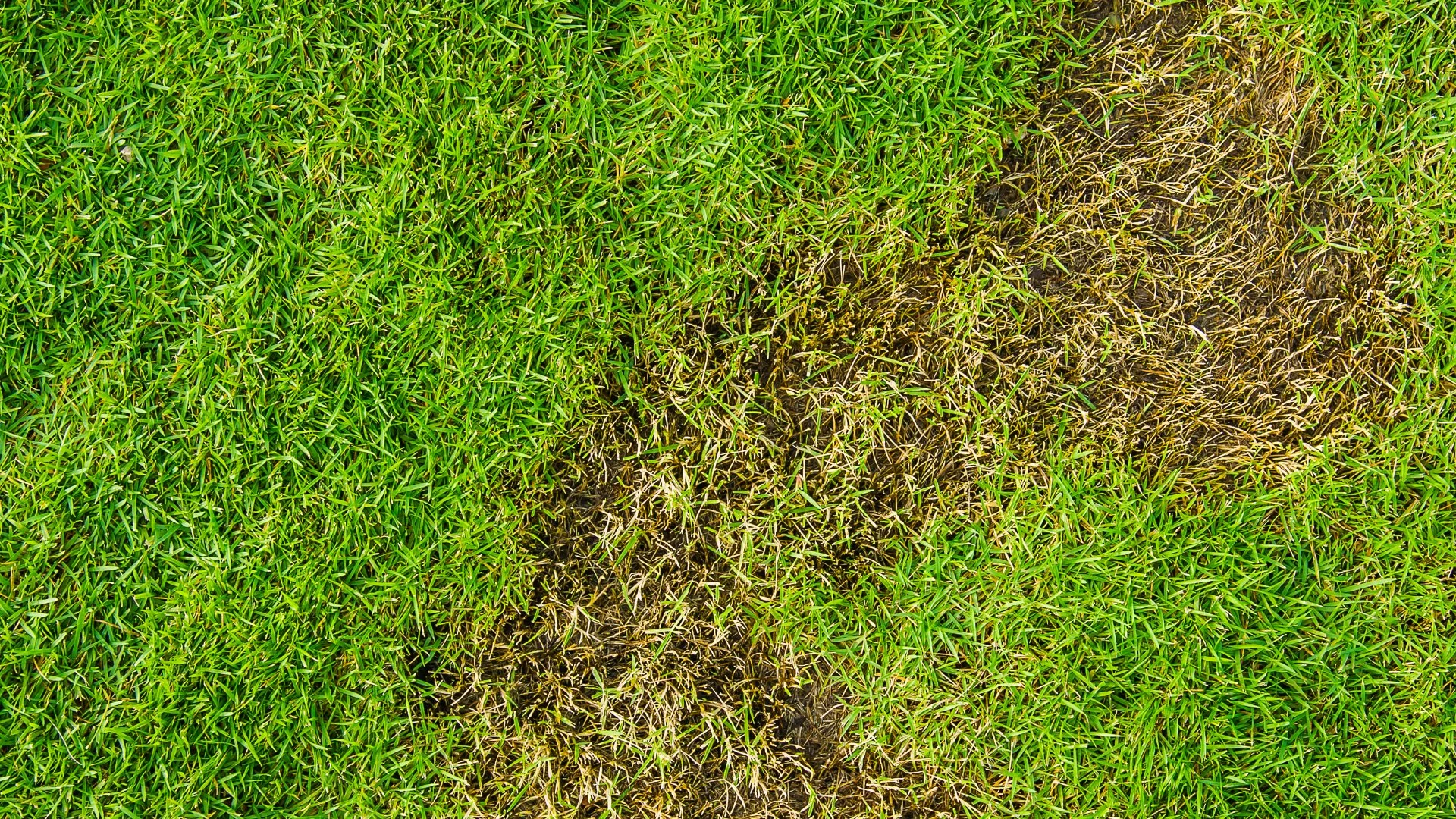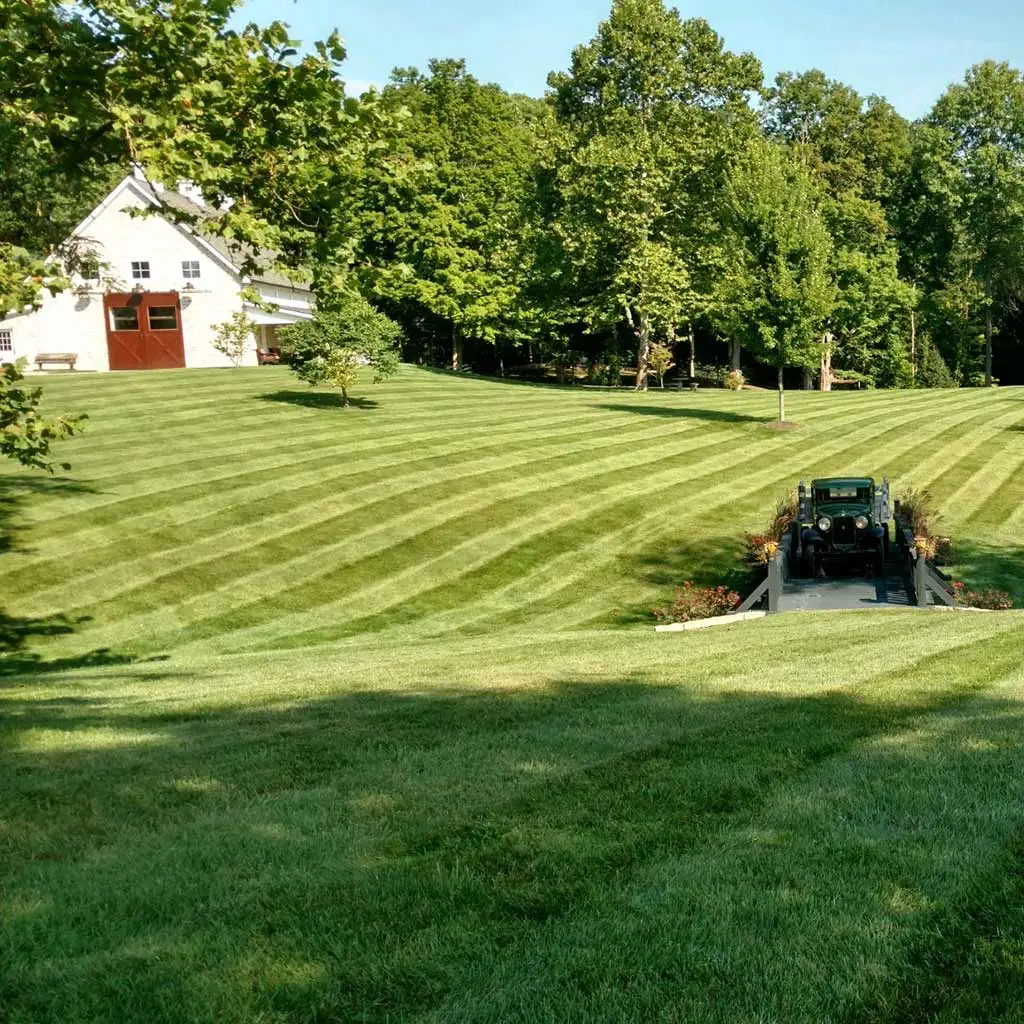Grubs and armyworms are two lawn-damaging insects that are common in Ohio. These pests can cause significant damage to your grass if left unchecked. Grubs feed on the roots of your grass, causing it to turn brown and die, while armyworms feed on the blades of your grass, leaving behind bare patches. If you suspect your lawn is infested with either of these insects, it's important to contact a professional lawn care company right away. They will be able to inspect your lawn to determine which insect has infested it and then apply their respective curative treatment to eliminate them. Once the insects have been eliminated, you can then schedule lawn care services to help your grass recover from any damage it sustained.
What does grub damage look like?

Grubs are the larvae of beetles that live underground and feed on the roots of your grass. As they eat away at the roots, they cause your grass to become weak and brown. If you suspect that your lawn in Ohio is infested with grubs, there are a few signs to look out for. First, you may notice patches of dead or dying grass that are easy to pull up. This is because the roots have been damaged by the grubs, making it difficult for the grass to stay anchored in the soil.
A grub-damaged lawn will also have an increase in animal activity, as animals like skunks and raccoons will dig up your grass in search of grubs to eat. If you notice any of these signs, it's important to take action right away to prevent further damage to your lawn.
What does armyworm damage look like?

Armyworms are another common lawn pest in Ohio that can cause significant damage to your grass. These insects feed on the blades of your grass, leaving behind bare patches. If you suspect that your lawn is infested with armyworms, there are a few signs to look out for. First, you may notice large patches of brown or dead grass that appear seemingly overnight. This is because armyworms can quickly strip your lawn of its foliage, leaving it looking bare and unhealthy.
Additionally, you may see the armyworms themselves crawling around on your lawn in Ohio. These insects are typically green or brown in color and can be up to 1.5 inches long. The grass blades of your turf will also have gnaw marks from the feeding of armyworms.
What should you do if you suspect your lawn is infested with grubs or armyworms?
If you suspect that your lawn is infested with grubs or armyworms, it's important to take action right away. The first step is to contact a professional lawn care company. They will be able to inspect your lawn to determine which insect has infested it and then apply their respective curative treatment to eliminate them. Once the insects have been eliminated, you can then schedule lawn care services to help your grass recover from any damage it sustained. Some of the services that can help your lawn in Ohio recover include:
- Lawn Fertilization: Fertilization treatments will provide your lawn with the nutrients it needs to recover from insect damage.
- Aeration: Aeration loosens compacted soil and makes it easier for nutrients and other resources to reach the roots of your grass. This will also help the roots develop deeper and stronger, making your lawn more resilient.
- Overseeding: Overseeding involves spreading grass seeds across your lawn to fill in any bare or patchy areas caused by insect damage.
Give us a call today to schedule our curative grub or armyworm control treatments!
If you suspect that your lawn is infested with grubs or armyworms, it's important to take action right away. At Hoffmans Lawn & Fertilization, we offer grub control and armyworm control treatments that will eliminate these pests from your lawn. Once they've been eliminated, we can then help your lawn recover from any damage it sustained via our various lawn care services, like lawn fertilization, aeration, and overseeding.
These services are offered to commercial and residential property owners, as well as HOAs, in Delaware, Lewis Center, Powell, and throughout the surrounding areas in Ohio. Give us a call today at (740) 318-5296 to schedule these treatments.




Comments (0)
Thanks for your comment!
Thanks for your feedback! Your comments have been successfully submitted! Please note, all comments require admin approval prior to display.
Error submitting comment!
There is a problem with your comment, please see below and try again.